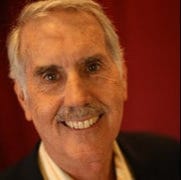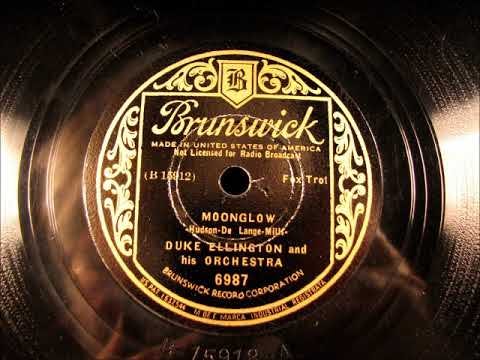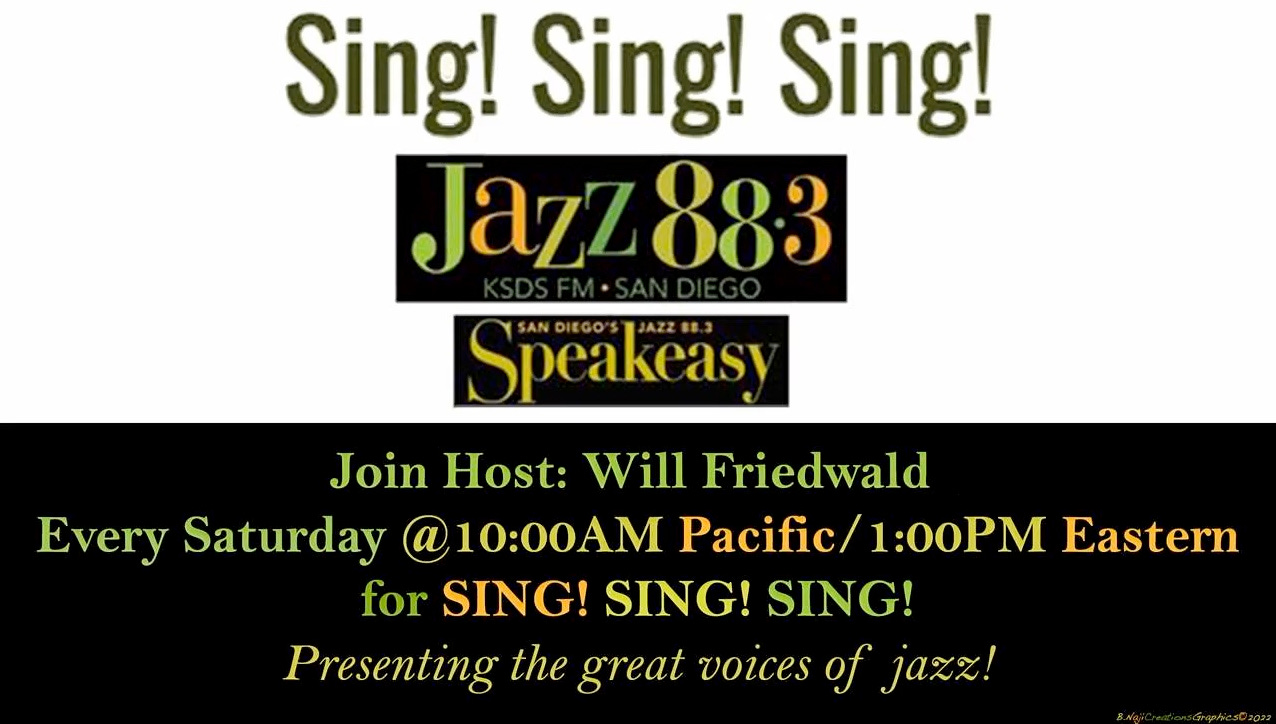The Many Faces of “Moonglow”
Part 1: “Sleepy Time” & “Lazy Rhapsody” into “Moonglow” (and "Solitude")
MOONGLOW by Duke Ellington 1934
A popular song everybody knows, “Moonglow” was introduced in 1933, first as an instrumental - the premiere recording is supposedly by Joe Venuti and his Orchestra, from September of that year. The first record with the lyrics - by Eddie DeLange - came a few months later from Cab Calloway and his Orchestra.
“Moonglow” is a great song, and importantly, it incorporates several other songs in both its prehistory and also in its subsequent evolution. (Special thanks to Lewis and Ellington scholar supreme Steven Lasker .)
I was thinking about “Moonglow” this past week when I interviewed Warren DeLange, the son of the great songwriter, for the current episode of my KSDS radio series Sing! Sing! Sing! The episode, titled Moonglow: The Eddie DeLange Songbook, was broadcast on KSDS this past Saturday, November 11. You can listen to it on KSDS here {KSDS Jazz 88}, or on the podbean app here {Podbean.com}.
Cab Calloway - Moonglow (I'm Living In The Past) (1934)
Many years ago, the dean of jazz scholars, the great Dan Morgenstern, did a presentation on the sources of “Moonglow” for the Duke Ellington Society. More recently, my buddy Lewis Porter wrote an authoritative essay (you can read it here) that both underscores and expands Dan’s original point.
The story begins with the 1931 song “When It’s Sleepy Time Down South,” which as Lewis shows, was being played by Duke Ellington and other bands well before Louis Armstrong made it his theme song. That song was written by Lene and Otis Rene, two African-American songwriting brothers who later became equally successful as music publishers, producers, and music biz entrepreneurs. (Among their later songs was “Someone’s Rocking My Dreamboat,” a particular favorite among Bugs Bunny fans.) The other credited collaborator was Clarence Muse, better known as an actor and singer, who played domestic parts in many Hollywood movies. Muse sang “Sleepy Time” in a play titled Under a Virginia Moon, staged in Los Angeles in June 1930.
Duke Ellington was broadcasting his arrangement of “Sleepy Time Down South” at least as early as 1932, as Lewis shows, and it is prominently featured on the earliest surviving live radio performance by the band. That recording, captured from the Publix Allyn Theatre in Hartford, Connecticut, on April 11, 1932, has still never been issued commercially, but it is streamable on the WBGO website as part of Lewis’s story.
The smoking gun is that Ellington’s arrangement of “Sleepy Time” includes passages that he had already worked into a new piece of his own, titled “Lazy Rhapsody.” Indeed, the performance on this aircheck sounds, to later ears, like a medley of “Sleepy Time” and “Lazy Rhapsody.” There’s also a charming vocal by drummer Sonny Greer, who later claimed he was the first to sing “Sleepy Time” (presumably he meant on the radio).
Duke Ellington’s 1932 live performance of “When It’s Sleepy Time Down South” (from the collection of Steven Lasker):
As Professor Porter notes, citing a period observation by English bandleader and critic Spike Hughes, the use of “Lazy” in Ellington’s title is a possible allusion to “Sleepy Time.” It’s also significant that “Sleepy Time” launched a brief vogue for such songs as “(When It’s) Darkness On the Delta” (1932) and “It's Slumbertime Along The Swanee” (1939). To judge from such songs, the only thing anybody ever did in the deep South was go to sleep.
When one listens to “Lazy Rhapsody” - which Ellington recorded in the studio in February 1932, two months before this radio performance of “Sleepy Time” - it does indeed sound like the forerunner of “Moonglow.”
Lazy Rhapsody - Duke Ellington and His Famous Orchestra - 1932 - HQ Sound
As Warren DeLange tells the story, both his father, Eddie DeLange, and Will Hudson were already working for the publisher and manager Irving Mills. DeLange was a lyricist, an occasional singer, and a flamboyant showman; Hudson was a gifted arranger and composer, then writing for Cab Calloway and other Mills bands, but not much of an on-stage personality. Mills had the bright idea of combining the two and for a few years, the Will Hudson-Eddie DeLange Orchestra, was a major attraction of the early swing era, recording prolifically on Mills-produced sessions for Brunswick in 1936-’37.
Alas, the two didn’t always get along, and by 1938, Hudson had left and DeLange had become the sole leader of the band. The band kept recording at least until late 1939, and for the rest of his comparatively short career, DeLange concentrated full-time on songwriting, eventually moving to Hollywood before he died at the young age of 45 in 1949. (There’s a lot more about DeLange and his songs, and the interview with his son Warren, on the Sing Sing Sing show.)
Warren doesn’t know where “Moonglow” came from - although it seems likely that Hudson would have been familiar with both “Sleepy Time” and “Lazy Rhapsody.” And when “Moonglow” materialized as a song unto itself, Mills had his name on it, as he often did, as a co-author. (Some of the earliest versions of “Moonglow” have a subtitle, “I’m Living In the Past” - evidently this was Hudson’s idea for a possible lyric, but it’s not an idea that DeLange actually incorporated into the words.)
Even though the melody is reminiscent of “Lazy Rhapsody” it’s far from a direct plagiarism, as Professor Porter notes. Ellington himself recorded a lovely version of “Moonglow” in 1934, and in 1935, he collaborated with DeLange on “(In my) Solitude,” which became one of the most successful songs in the catalog of either author. (And yes, Mills’s name is on that one too.)
As it happened, that was the only song the two wrote together. Warren DeLange, who was only three when his father died, did get the opportunity to meet Duke Ellington many years later, near the end of the Maestro’s life:


Now. I had the chance to meet Duke Ellington about 18 months before he passed away. Now remember, since my dad died so young, there was no connection between the Ellington and Delange families as far as families go. That one song is the only thing they wrote together,
My wife and I are in Vegas, and lo and behold, in the Lounge Show, not the big theaters, but in the lounge show, there is Duke Ellington's orchestra! I had never met him, but I always wanted to talk to him about “Solitude.” So we go to sit down in the showroom, and so I pull this giant bluff. I tell the maitre’d, “Excuse me, I have an appointment with Mr. Ellington after the show, but he didn't tell me where to meet him. If you could direct me, I'd really appreciate it.” I was sure that this guy was going to say, “Sit down, you clown!” Like, he hasn't heard this before. But no, he directs me backstage. He says “Go down the hallway and knock on door number five.”
So after the show, I knock on door number five. Duke’s manager comes out. And because I was nervous, I didn't use my dad's name. And I said, “My name is Warren DeLange, and Mr. Ellington wrote some songs with my dad. If I could meet him, it'd be great.”
So he goes in the room, comes out a minute later, says, “come on in.” So I step in the room and Duke is sitting on the bed and he's got this cap on to keep his hair ready for the next show. And he swings around, flashes this big grin. And remember, 35 years since there's a connection, he says, “So you're Eddie's kid. Come on over here.” I mean, hair in the back of my neck stood up to get a reaction like that. And so he talked for about 30 minutes before he goes to this next show, and I was walking down the hall after the show to go watch him again.
And here's a man that's performing for kings and queens and presidents. And here he is in the mid seventies where swing bands are totally dead, and he's going to go out and play for a handful of people in a lounge show. And then of course he passed away about 18 months after that. But boy, such a thrill to get to meet the man that had this song. That's just such a legendary song for everybody.
to be continued tomorrow in
The Many Faces of “Moonglow,”
Part 2: “On a Picnic morning”
1st RECORDING OF: Moonglow - Joe Venuti (1933 ARC version)
Very Special thanks to the fabulous Ms. Elizabeth Zimmer, for expert proofreading of this page, and scanning for typos, mistakes, and other assorted boo-boos!
Sing! Sing! Sing! : My tagline is, “Celebrating the great jazz - and jazz-adjacent - singers, as well as the composers, lyricists, arrangers, soloists, and sidemen, who help to make them great.”
A production of KSDS heard Saturdays at 10:00 AM Pacific; 1:00PM Eastern.
To listen to KSDS via the internet (current and recent shows are available for streaming.) click here.
The whole series is also listenable on Podbean.com, click here.
SLOUCHING TOWARDS BIRDLAND is a subStack newsletter by Will Friedwald. The best way to support my work is with a paid subscription, for which I am asking either $5 a month or $50 per year. Thank you for considering. Word up, peace out, go forth and sin no more!
Note to friends: a lot of you respond to my SubStack posts here directly to me via eMail. It’s actually a lot more beneficial to me if you go to the SubStack web page and put your responses down as a “comment.” This helps me “drive traffic” and all that other social media stuff. If you look a tiny bit down from this text, you will see three buttons, one of which is “comment.” Just hit that one, hey. Thanks!




